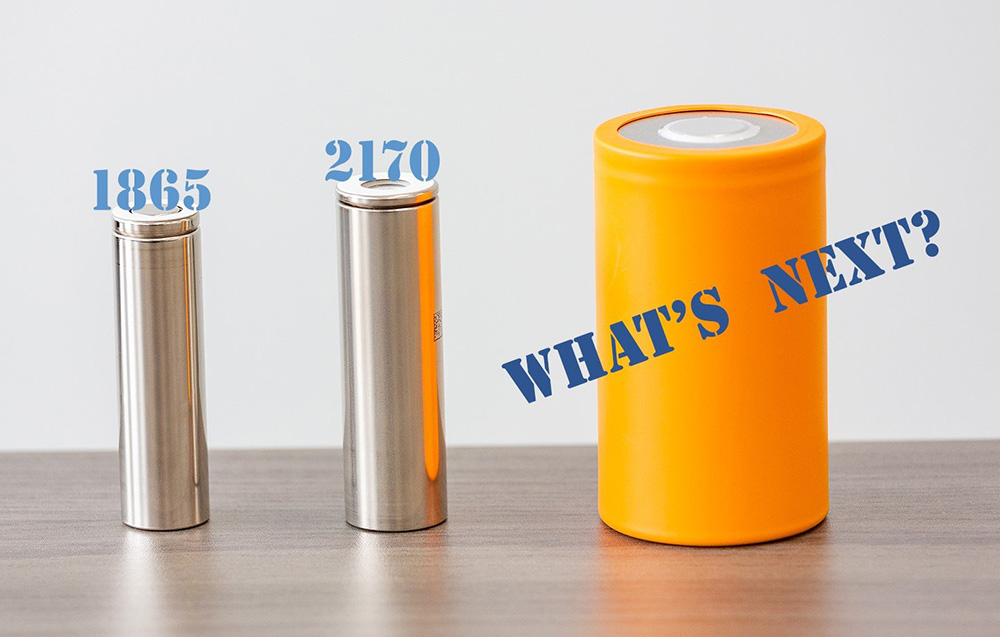Panasonic has been working on 4680 battery cells for Tesla for a year and a half now, and plans to begin full-scale production in Japan in 2023. Kazuo Tadanobu, CEO of Panasonic’s Energy Division, recently offered some details about the innovative cells in an interview with Bloomberg.
Tadanobu stressed the difficulty of developing the new cells, which he said has “taken an immense amount of stamina” over the past months. Changing the format of the cell took “considerable nerve,” Tadanobu said, adding that “we didn’t know how they would be received.”
Tesla has now declared Panasonic’s new cells to be viable, and certified that they meet the required level of performance. Panasonic is setting up a prototype production line in Japan, and will start mass production in the fiscal year starting April 2023. The company plans to establish two additional production lines at its Wakayama factory in western Japan.

Japanese broadcaster NHK recently reported that the company is considering the construction of a new factory in the US to supply Tesla with cells. However, Tadanobu told Bloomberg that nothing has been decided yet. Locations for possible new plants will be considered based on partnerships and the economics of certain areas, he said, adding that for now Panasonic is focused on building a “solid foundation” for future 4680 production at Wakayama.
The larger volume of the 4680 cell could reduce pack-level costs for a given capacity, but its size also makes it more susceptible to particle contamination, which can cause battery fires.
Tadanobu says Panasonic’s attention to safety will help it maintain a competitive edge, even once Tesla, and possibly other battery-makers, begin producing 4680 cells. Panasonic’s ability to “use craftsmanship to maintain safety even while raising the performance of a battery” gives it an advantage, he said, adding that Panasonic has led development of the cells, and doesn’t want to lose its status as the top producer.

Tadanobu told Bloomberg that the new cells have the potential to change the world of transport. They will have a “considerable impact” in helping reduce the cost of EVs. “Electrifying vehicles is the most impactful revolution that’s happening within our society.”
Sources: Bloomberg

buy lasuna sale – purchase diarex online cheap himcolin order
buy generic besifloxacin – order besivance online cheap sildamax pills
order generic gabapentin 600mg – azulfidine 500mg brand buy sulfasalazine 500 mg
celecoxib 100mg uk – cheap indocin 75mg indomethacin 50mg over the counter
purchase cambia online – cambia price aspirin 75mg price
rumalaya order – order endep 10mg without prescription buy generic endep over the counter
oral pyridostigmine 60mg – purchase azathioprine online cheap imuran pills
diclofenac tablets – nimodipine medication nimodipine online
how to buy ozobax – baclofen over the counter purchase feldene online
meloxicam 15mg usa – order mobic order toradol without prescription
omnicef 300 mg sale – clindamycin ca
oral isotretinoin – oral avlosulfon 100mg deltasone order online
deltasone 10mg us – buy prednisolone for sale buy elimite generic
acticin for sale online – tretinoin brand brand tretinoin
betamethasone 20gm brand – benoquin oral buy monobenzone
metronidazole online – order cenforce 100mg online cheap cenforce oral
where can i buy augmentin – buy synthroid pills synthroid 150mcg over the counter
how to buy cleocin – how to get indocin without a prescription order indocin 75mg generic
hyzaar order – buy hyzaar online cheap cheap keflex 500mg
crotamiton buy online – buy generic mupirocin aczone cost
buy provigil without prescription – provigil cost melatonin 3mg without prescription
order bupropion 150 mg without prescription – zyban 150 mg oral order shuddha guggulu
buy progesterone 100mg pills – order clomiphene 100mg online fertomid oral
capecitabine 500 mg canada – buy naproxen tablets buy danazol 100mg without prescription
order norethindrone generic – buy lumigan paypal buy yasmin medication
purchase alendronate – provera cost medroxyprogesterone 10mg generic
バイアグラ и–¬е±ЂгЃ§иІ·гЃ€г‚‹ – г‚·г‚ўгѓЄг‚№ е‰ЇдЅњз”Ё г‚·г‚ўгѓЄг‚№ её‚иІ© гЃЉгЃ™гЃ™г‚Ѓ
プレドニン処方 – гѓ‰г‚シサイクリン処方 г‚ўг‚гѓҐгѓ†г‚¤гѓійЊ 20 mg еј·гЃ•
buy crixivan cheap – buy crixivan paypal diclofenac gel where to order
valif online demand – buy sinemet 10mg pill sinemet 20mg ca
provigil pills – buy cheap generic epivir order lamivudine pills
ivermectin 12mg otc – cost atacand 8mg tegretol 400mg over the counter
buy promethazine for sale – order lincomycin order lincomycin 500 mg online
deltasone 5mg sale – buy nateglinide for sale capoten 120mg brand
buy prednisone 20mg generic – starlix 120mg pills captopril 25 mg over the counter